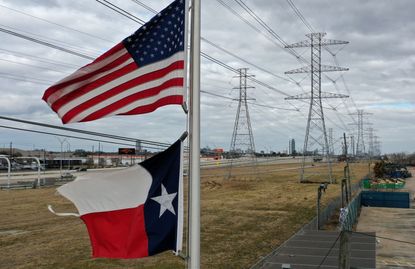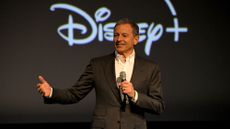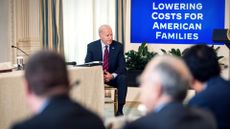WSJ: Texas' energy deregulation has been a terrible deal for Texas consumers


When Texas deregulated its electricity market two decades ago, proponents promised that consumers would get better service at lower prices. Long before the service half of that equation proved spectacularly wrong during last week's freeze, the 60 percent of Texans required to buy their electricity from retail power companies, not local utilities, were already getting a lousy deal, The Wall Street Journal reports.
"Those deregulated Texas residential consumers paid $28 billion more for their power since 2004 than they would have paid at the rates charged to the customers of the state's traditional utilities," the Journal found, based on its analysis of federal Energy Information Administration data. "From 2004 through 2019, the annual rate for electricity from Texas' traditional utilities was 8 percent lower, on average, than the nationwide average rate, while the rates of retail providers averaged 13 percent higher than the nationwide rate."
The theory behind deregulating the electricity market was that forcing retail power companies to compete for customers would lead to innovation and lower prices. "In other states that allow retail competition for electricity, customers have the option of getting their power from a regulated utility," the Journal notes. Large parts of Texas don't have an incumbent utility to compete against, and the retail industry has been consolidating under two major retailers, Vistra and NRG Energy, which now control at least 75 percent of the retail market.
Subscribe to The Week
Escape your echo chamber. Get the facts behind the news, plus analysis from multiple perspectives.

Sign up for The Week's Free Newsletters
From our morning news briefing to a weekly Good News Newsletter, get the best of The Week delivered directly to your inbox.
From our morning news briefing to a weekly Good News Newsletter, get the best of The Week delivered directly to your inbox.
On the power generation side, Texas deregulation has rewarded companies that can sell cheap power to retailers and utilities — or sometimes really expensive power — but it provides little incentive and no requirements to invest in infrastructure that would have prevented last week's widespread blackouts. Now, "Republican Gov. Greg Abbott wants to force power plants to winterize," The Associated Press reports, and the GOP-led Texas Legislature will start lashing the state's grid operators in hearings Thursday.
"In a lot of respects, we're victims of our own attempt to let free market forces work," state Rep. Drew Darby (R) told AP. "Typically, you know, the Texas Legislature pushes back on overregulation," but "my view on something as basic to human survival and need is we need to have reliable power and water." State Rep. Rafael Anchia (D) agreed that "regulation is a four-letter word in this building at times," but said "four million people without power and 12 million people without drinkable water, right, that gets everybody's attention."
Create an account with the same email registered to your subscription to unlock access.
Sign up for Today's Best Articles in your inbox
A free daily email with the biggest news stories of the day – and the best features from TheWeek.com
Peter has worked as a news and culture writer and editor at The Week since the site's launch in 2008. He covers politics, world affairs, religion and cultural currents. His journalism career began as a copy editor at a financial newswire and has included editorial positions at The New York Times Magazine, Facts on File, and Oregon State University.
-
 Fallout: one of the 'most faithful – and best – video game adaptations'
Fallout: one of the 'most faithful – and best – video game adaptations'The Week Recommends This 'genre-bending' new Amazon series is set in a post-apocalyptic wilderness where survivors shelter below ground
By Adrienne Wyper, The Week UK Published
-
 'Test of faith for Trump Media's investors'
'Test of faith for Trump Media's investors'Today's Newspapers A roundup of the headlines from the US front pages
By The Week Staff Published
-
 Will Iran attack hinder support for Ukraine?
Will Iran attack hinder support for Ukraine?Today's Big Question Pro-Kyiv allies cry 'hypocrisy' and 'double standards' even as the US readies new support package
By Elliott Goat, The Week UK Published
-
 Empty-nest boomers aren't selling their big homes
Empty-nest boomers aren't selling their big homesSpeed Read Most Americans 60 and older do not intend to move, according to a recent survey
By Peter Weber, The Week US Published
-
 Brazil accuses Musk of 'disinformation campaign'
Brazil accuses Musk of 'disinformation campaign'Speed Read A Brazilian Supreme Court judge has opened an inquiry into Elon Musk and X
By Rafi Schwartz, The Week US Published
-
 Disney board fends off Peltz infiltration bid
Disney board fends off Peltz infiltration bidSpeed Read Disney CEO Bob Iger has defeated activist investor Nelson Peltz in a contentious proxy battle
By Rafi Schwartz, The Week US Published
-
 Disney and DeSantis reach detente
Disney and DeSantis reach detenteSpeed Read The Florida governor and Disney settle a yearslong litigation over control of the tourism district
By Peter Weber, The Week US Published
-
 Visa and Mastercard agree to lower swipe fees
Visa and Mastercard agree to lower swipe feesSpeed Read The companies will cap the fees they charge businesses when customers use their credit cards
By Peter Weber, The Week US Published
-
 Reddit IPO values social media site at $6.4 billion
Reddit IPO values social media site at $6.4 billionSpeed Read The company makes its public debut on the New York Stock Exchange
By Peter Weber, The Week US Published
-
 Housing costs: the root of US economic malaise?
Housing costs: the root of US economic malaise?speed read Many voters are troubled by the housing affordability crisis
By Peter Weber, The Week US Published
-
 Feds cap credit card late fees at $8
Feds cap credit card late fees at $8speed read The Consumer Financial Protection Bureau finalized a rule to save households an estimated $10 billion a year
By Peter Weber, The Week US Published